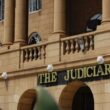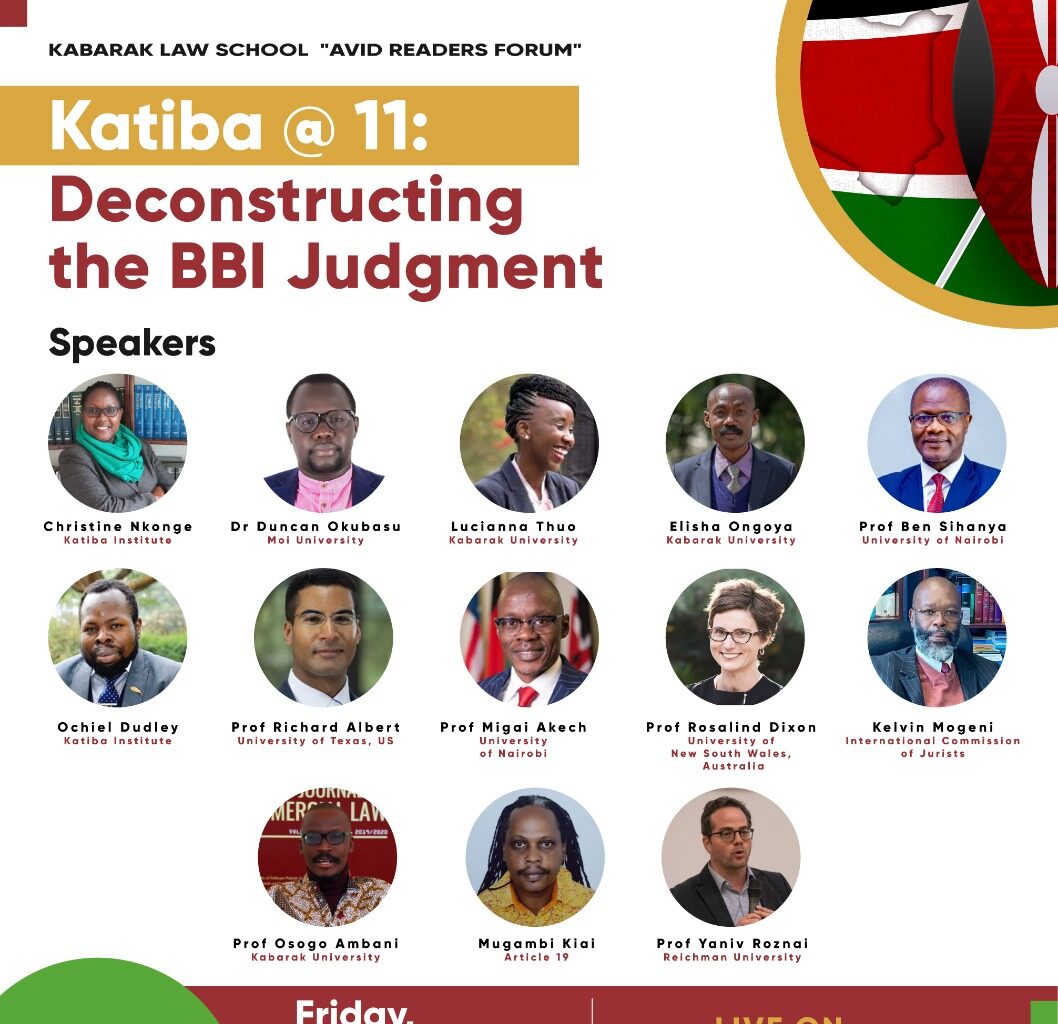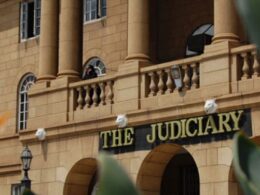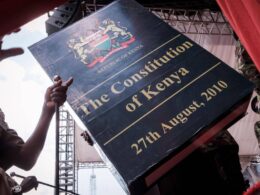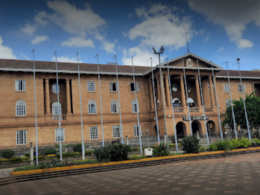By Susan Kendi.
“The decision of the Court of Appeal was a demonstration of deep commitment by the Judiciary to discharge its role of protecting the Constitution.” – ICJ Kenya Chairman Kelvin Mogeni.
A week after the Court of Appeal upheld the High Court’s decision that BBI was unconstitutional, Kenyans commemorated the 11th anniversary of the promulgation of the 2010 Constitution, Katiba Day.
The Kenyan Section of the International Criminal Court(ICJ Kenya), Katiba Institute, Kabarak Law School, and Article 19 Eastern Africa celebrated the day by holding the webinar on ‘Deconstructing the BBI Judgment.’
The discussion focused on the general views on the BBI judgment, positive and negative outcomes of the court judgment, the Basic Structure Doctrine, and the role of public participation, the Judiciary, Civil Society, and Media in Constitutional Change.
The panel consisted of Professor Rosalind Dixon, Prof. Richard Albert, Prof. Ben Sihanya, Prof. Migai Aketch, Professor Yaniv Roznai, Dr. Duncan Okubasu, Mr. Dudley Ochiel, Elisha Ongoya, and Professor Ben Sihanya with Lucianna Thuo and Silas Kamanza moderating the session.
Making opening remarks at the session, ICJ Kenya’s Chairman, Kelvin Mogeni, highlighted that, “The findings of the Court buttressed our aspirations to integrate Constitutionalism as our instinctive and default practice in governance. Further, the decision cements Judicial independence.”
Referring to the judgment, one of the panelists, Yaniv Roznai, spoke on how the court of Appeal judgment protected the vertical separation of power between government and the people. He added that he admires the availability of proceedings and judgments that he witnessed in the BBI case.
Contributing to the discussion, Professor Osogo J Ambani analysed a bird called ‘Sankofa.’ The Sankofa flies head facing back. He suggested that it doesn’t hurt looking at your history of constitutional reform and concluded by asking, “Is the future already with us, or can we look back?”
“The BBI Case is a battle for the soul of the nation. The Court did not rule that the BBI cannot become law. It ruled that it can become law vide the amendment procedures! The four-stage sequence,” added Prof. Richard Albert as he analysed the judgment.
Discussing public participation, Gautam Bhatia stated that the obligation of public participation rests on the state and state agencies.
Katiba Institute Executive Director Christine Nkonge and Article 19 Regional Director for Kenya and Eastern Africa, Mugambi Kiai, gave their closing remarks on the discussion, agreeing that the constitution is getting better from the pronouncements by the Court.
“If making amendments is hard for citizens, it should be hard for the political elite,” said Mugambi Kiai.
On August 20, the Court of Appeal has delivered a landmark judgment upholding the High Court’s decision declaring the Building Bridges Initiative (BBI) bill unconstitutional, null, and void.
In a majority ruling of five versus two Judges, Justices Daniel Musinga, Hannah Okwengu, Patrick Kiage, Gatembu Kairu, and Francis Tuiyott affirmed the decision, whereas Justices Fatuma Sichale and Roselyne Nambuye dissented.
During the 10-hour televised judgment, the Judges dismissed the cross-appeals and issued a permanent injunction barring IEBC from conducting a referendum on the Constitution Amendment Bill 2020.
The decision was guided by the bench’s analysis of the basic structure doctrine and its applicability in Kenya, the legality of the BBI process, the Constitution of Independent Electoral and Boundaries Commission (IEBC) to govern the conduct of a referendum, and whether there was a quorum to review the signatures submitted, initiators of the BBI process and the immunity of President Uhuru Kenyatta.
The majority judges further termed the BBI steering committee established by President Kenyatta as an “unconstitutional and unlawful entity”, adding that the president has no power to initiate changes to the constitution. This initiation can be only be done by the parliament with the involvement of citizens.
“The basic structure of the Constitution can only be altered through the Primary Constituent Power which must include four sequential processes namely: civic education; public participation and collation of views; Constituent Assembly debate; and ultimately, a referendum,” said four judges with Justices Okwengu, Gatembu and Sichale dissenting.
Before the proceedings began, the President of the Court, Justice Musinga announced that each Judge had written their judgment and shall each read what they consider most important of the Judgement.
Justice Francis Tuiyott read out two portions of his reasoning analyzing the petitions filed by the parties and the lessons derived from his opinion.
Justice Gatembu Kairu agreed with the High Court’s stating that there was a need to supply sufficient copies of the BBI to voters emphasizing that there was no evidence of public participation.
“I am in agreement with the High Court that there is a legal requirement under article 10 of the constitution for voters to be supplied with adequate information to make informed decisions. There is no evidence that was done in this case,” said Justice Kairu.
Reading out his opinion, Justice Patrick Kiage laid bare the history of the struggle for democracy, rule of law, and constitutional reform that led to the birth of the 2010 Constitution of Kenya.
“Lawyers in public interest cases, have a higher duty beyond the narrow, partisan, and selfish interests of their clients,” he said.
The judges having agreed that the IEBC lacked the quorum to hold a referendum, Justice Kiage stated that “The quorum of the IEBC cannot be three it must be five…All the decisions made by the IEBC in relation to the proposed constitutional amendment via the BBI Amendment bill were invalid, null, and void for lack of quorum.”
Dealing with the same issues, Justice Roselyne Nambuye mentioned that, “The issues were common, the presentation is the difference…”
In Justice Hannah Okwengu’s presentation, she selected a few issues to address of which she expressed a different opinion from the majority.
“In the end, all the parties have won because the Constitution has won,” said Justice Okwengu at the end of her opinion.
In a dissenting opinion, Justice Fatuma Sichale argued that “It was wrong for the High Court to proceed with the hearing and thereafter make adverse findings against H.E Uhuru Kenyatta without ascertaining whether he had been served either with the petition and or the subsequent hearing notices.”
Speaking to Kenyans, Justice Sichale had a piece of advice.
“I know that as Kenyans, we love to demonize our elected political leaders. We do this all the time, but rarely do we stop to remember we get the leaders we deserve,” she said.
Justice Daniel Musinga summarized all submissions presented before the Court of Appeals by the parties.
“I identified 21 thematic issues which I will give my brief views on and finally deliver the final orders of the Court based on the findings of each one of us…Any amendment that alters the constitutional fundamentally is not an ordinary constitutional amendment. It amounts to dismemberment of the constitution,” said Justice Musinga.
“… I find that the amendment bill was not by popular initiative. And although there was a degree of public participation in its development and passing, it was not in accordance with the national values and principles under article 10 of the constitution, “he added before concluding with the judgment.
On May 13, 2021, the High Court issued declared the Building Bridges Initiative, Civil Appeal No. E291/2021 – IEBC & Others – VS – David Ndii & Others, unconstitutional, issuing 22 orders on the same lines.
The five-judge bench composed of Justices Prof. Joel Ngugi Presiding, Vincent Odunga, Jairus Ngaah, Chacha Mwita, and Teresia Matheka declared the BBI process to amend the 2010 Constitution unconstitutional, null and void and termed the 14 member BBI task force as an “unlawful entity.”
The judgment painted an image of a progressive judiciary years after the Supreme Court the Former Chief Justice Daniel Maraga annulled the 2017 elections and nullified President Kenyatta’s win.
Two of the Judges who sat on the bench, justices Joel Ngugi and George Odunga, are some of the nominees that President Kenyatta has refused to gazette and swear in.
Watch the webinar recording: https://www.youtube.com/watch?v=WfNcwodDKh4&t=9s



